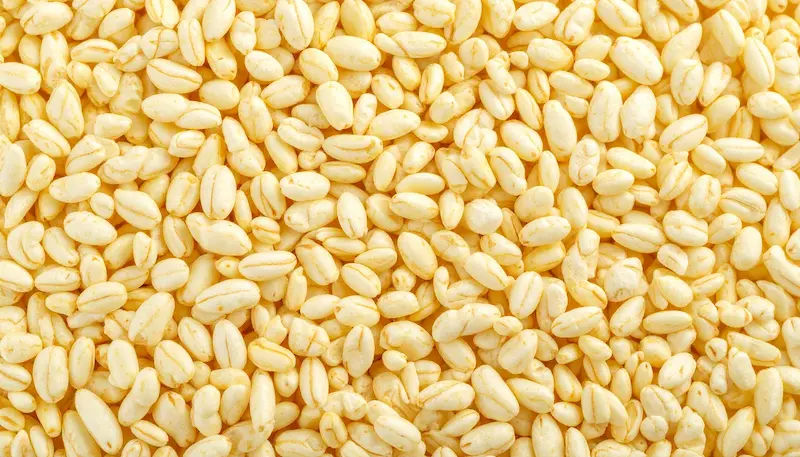Natural Ingredients for Repelling Mosquitoes
Discover effective natural ingredients for repelling mosquitoes, including essential oils and plant-based solutions. Learn how these natural repellents work and how to use them safely to prevent mosquito bites.

Written by Dr. Shaik Abdul Kalam
Reviewed by Dr. Vasanthasree Nair MBBS
Last updated on 13th Jan, 2026

Introduction
Mosquitoes are not just annoying; they can also carry diseases like malaria, dengue, and Zika virus. While chemical repellents are effective, they may contain harsh ingredients that some people prefer to avoid. Fortunately, nature provides us with several safe and natural alternatives to keep mosquitoes at bay.
In this article, we’ll explore some of the best natural ingredients for repelling mosquitoes, how to use them, and tips to protect yourself and your family.
Why Use Natural Mosquito Repellents?
Chemical mosquito repellents often contain DEET, picaridin, or other synthetic compounds. While these are effective, some people experience skin irritation or prefer more eco-friendly options. Natural repellents, derived from plants and essential oils, offer a gentler yet effective way to ward off mosquitoes without harsh side effects.
Health topic carousel:
Doctor's speciality: General Physician
Text: Consult a General Physician for the best advice
Top Natural Ingredients to Repel Mosquitoes
Effective natural remedies that help keep mosquitoes at bay without harmful chemicals. These plant-based ingredients can offer protection and peace of mind, especially during mosquito-prone seasons.
1. Citronella Oil
Citronella is one of the most well-known natural mosquito repellents. Its strong citrusy scent masks other attractants like body odor and carbon dioxide, making it harder for mosquitoes to find you.
How to Use:
Use citronella candles or torches outdoors.
Mix a few drops of citronella oil with a carrier oil (like coconut oil) and apply to the skin.
2. Lemon Eucalyptus Oil
The Centers for Disease Control and Prevention (CDC) recognizes lemon eucalyptus oil as an effective mosquito repellent. It contains a compound called PMD (para-menthane-3,8-diol), which has been proven to repel mosquitoes.
How to Use:
Mix 10-15 drops of lemon eucalyptus oil with 2 tablespoons of a carrier oil and apply to exposed skin.
Avoid using it on children under three years old.
3. Lavender Oil
Lavender has a pleasant floral scent that mosquitoes dislike. It also has soothing properties for the skin, making it a great dual-purpose repellent.
How to Use:
Apply diluted lavender oil to pulse points (wrists, ankles, neck).
Place dried lavender sachets near windows or outdoor seating areas.
4. Peppermint Oil
Peppermint oil not only repels mosquitoes but also has a cooling effect on the skin. Its strong menthol scent keeps bugs away naturally.
How to Use:
Mix with water in a spray bottle and spritz on skin or clothing.
Plant peppermint in your garden to deter mosquitoes.
5. Neem Oil
Neem oil is a traditional remedy in many cultures for repelling insects. It has antibacterial and antifungal properties, making it beneficial for skin health as well.
How to Use:
Mix neem oil with coconut oil and apply to the skin.
Burn neem leaves to keep mosquitoes away from indoor spaces.
6. Tea Tree Oil
Tea tree oil has antiseptic and insect-repelling properties. Its strong medicinal scent is effective against mosquitoes and other insects.
How to Use:
Add a few drops to a diffuser to repel mosquitoes indoors.
Mix with aloe vera gel for a soothing repellent lotion.
7. Basil
Basil is not just a kitchen herb; it also works as a natural mosquito repellent. The strong aroma of basil leaves confuses mosquitoes and keeps them away.
How to Use:
Place fresh basil plants near windows or outdoor seating.
Crush basil leaves and rub them on the skin for temporary protection.
8. Garlic
Eating garlic or applying garlic-infused oil can make your body less attractive to mosquitoes. The sulfur compounds in garlic are released through sweat, acting as a natural deterrent.
How to Use:
Add more garlic to your diet.
Crush garlic cloves, mix with water, and spray around mosquito-prone areas.
Tips for Using Natural Mosquito Repellents Effectively
Maximize the protection of natural mosquito repellents by applying them properly, reapplying as needed, and combining them with other preventive measures for the best results.
1. Reapply Frequently – Natural oils evaporate faster than chemical repellents, so reapply every 2-3 hours.
2. Patch Test First – Some essential oils can irritate sensitive skin. Always dilute with a carrier oil and test on a small area before full application.
3. Combine Methods – Use multiple natural repellents (like candles, sprays, and plants) for better protection.
4. Avoid Eyes and Mouth – Essential oils can be irritating if they come into contact with sensitive areas.
5. Wear Protective Clothing – Long sleeves and pants reduce exposed skin, making repellents more effective.
When to Seek Medical Help
While natural repellents are safe for most people, some may experience allergic reactions. If you develop a rash, swelling, or difficulty breathing after using an essential oil, wash the area immediately and consult a doctor.
If you or a family member experience symptoms like high fever, body aches, or rashes after a mosquito bite, it could indicate a mosquito-borne illness. In such cases, seek medical attention promptly.
Final Thoughts
Natural mosquito repellents are a great alternative to chemical-based products, especially for those with sensitive skin or environmental concerns. By using ingredients like citronella, lemon eucalyptus, and neem oil, you can protect yourself and your family from mosquito bites in a safe and eco-friendly way. Remember, prevention is key; keep your surroundings clean, eliminate stagnant water, and use these natural remedies to enjoy a mosquito-free environment.
Health topic carousel:
Doctor's speciality: General Physician
Text: Consult a General Physician for the best advice




